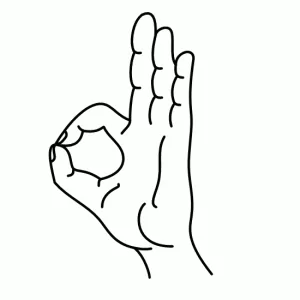 “Okay” is a word we use often unconsciously to mean a variety of things. We employ it to say something is decent, to state a situation is normal, as an acknowledgement of hearing someone, and more. However, we might not consider the origins of this peculiar word. Where did it come from? This essay will answer this question and more.
“Okay” is a word we use often unconsciously to mean a variety of things. We employ it to say something is decent, to state a situation is normal, as an acknowledgement of hearing someone, and more. However, we might not consider the origins of this peculiar word. Where did it come from? This essay will answer this question and more.

✅ AI Essay Writer ✅ AI Detector ✅ Plagchecker ✅ Paraphraser
✅ Summarizer ✅ Citation Generator
Firstly, it is important to note that there are several theories about the origin of “okay.” Indeed, many words are similar to it in various languages. According Oxford Dictionaries, “It does not seem at all likely, from the linguistic and historical evidence, that it comes from the Scots expression och aye, the Greek ola kala (‘it is good’), the Choctaw Indian oke or okeh (‘it is so’), the French aux Cayes (‘from Cayes’, a port in Haiti with a reputation for good rum) or au quai (‘to the quay’, as supposedly used by French-speaking dockers), or the initials of a railway freight agent called Obediah Kelly who is said to have written them on documents he had checked” (“What Is the Origin of the Word ‘OK?”’). Though these variants seem to connect to the word in question, the evidence does not lead to them. Instead, the origin of “okay” comes from a much more American starting point.
And, it is hard to say if there is a more American city than Boston. This city was at the forefront of political, educational, and industrial movements in the America of the 1830s. According to Mental Floss, “On Saturday, March 23, 1839, the editor of the Boston Morning Post published a humorous article about a satirical organization called the “Anti-Bell Ringing Society ” in which he wrote:
The “Chairman of the Committee on Charity Lecture Bells,” is one of the deputation, and perhaps if he should return to Boston, via Providence, he of the Journal, and his train-band, would have his “contribution box,” et ceteras, o.k.—all correct—and cause the corks to fly, like sparks, upward.
It wasn’t as strange as it might seem for the author to coin OK as an abbreviation for “all correct.” There was a fashion then for playful abbreviations like i.s.b.d (it shall be done), r.t.b.s (remains to be seen), and s.p. (small potatoes). A twist on the trend was to base the abbreviations on alternate spellings or misspellings, so “no go” was k.g. (know go) and “all right” was o.w. (oll write)” (“What’s the Real Origin of ‘OK’?”). What is astounding is that this jokey abbreviation stayed throughout all these years, while other such abbreviations faded away. There are multiple reasons why this happened, however.
After the first printing of “o.k.,” it was used several other times in newspapers across the country, and it became increasingly common to see it placed in articles. It became so normal in print that it was employed in the US presidential election of 1840 within the Democratic Party. According to Oxford Dictionaries, “Their candidate, President Martin Van Buren, was nicknamed ‘Old Kinderhook’ (after his birthplace in New York State), and his supporters formed the ‘OK Club’. This undoubtedly helped to popularize the term (though it did not get President Van Buren re-elected)” (“What Is the Origin of the Word ‘OK?”’). The word being used in such a fashion obviously placed the term on a national stage, and even an international one. This was the turning point for “okay” from being a joke in newspapers to becoming a nationwide phenomenon.
What pushed the fame of “okay” further was that it began to be incorporated into technology. With the introduction of the telegraph in 1844, sending “ok” to people was easy, fast, and convenient for showing how someone was doing. Eventually, telegraphic messages were not complete without the usage of “ok” to confirm information (Vox).
Looking back, “okay” has come a long way. It started as a jokey abbreviation in Boston in the 1830s that was printed in newspapers, and got picked up as a presidential slogan in 1840. It then crept into technology with the telegram, where it shined with its short form and encompassing meaning. Today, it may be considered a parasite word by many, but it seems its standing is okay.
Works Cited
“What Is the Origin of the Word ‘OK’? | Oxford Dictionaries.” Oxford Dictionaries | English, Oxford Dictionaries, en.oxforddictionaries.com/explore/what-is-the-origin-of-the-word-ok/.
“What’s the Real Origin of ‘OK’?” Mental Floss, 12 Apr. 2013, mentalfloss.com/article/50042/whats-real-origin-ok.
Vox. “Why We Say ‘OK.’” YouTube, YouTube, 12 Sept. 2018, www.youtube.com/watch?v=1UnIDL-eHOs.
Follow us on Reddit for more insights and updates.





Comments (0)
Welcome to A*Help comments!
We’re all about debate and discussion at A*Help.
We value the diverse opinions of users, so you may find points of view that you don’t agree with. And that’s cool. However, there are certain things we’re not OK with: attempts to manipulate our data in any way, for example, or the posting of discriminative, offensive, hateful, or disparaging material.